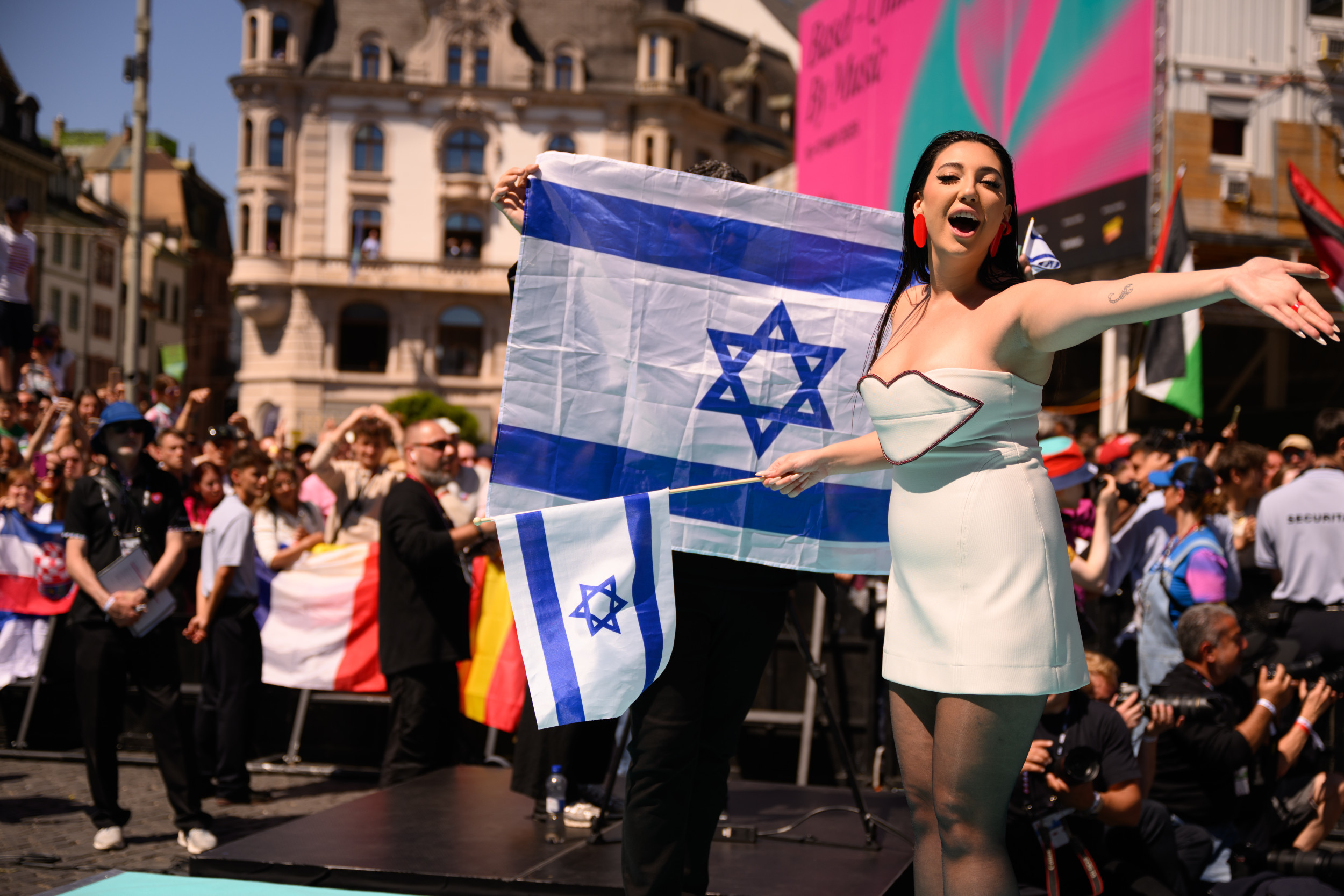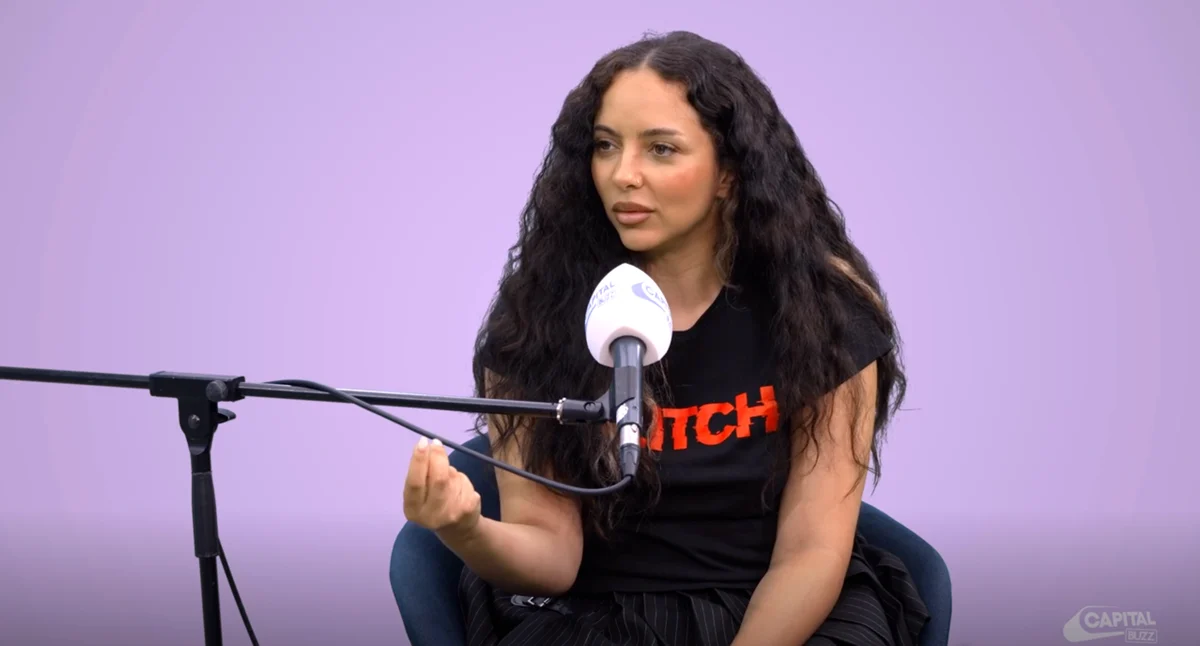
Five countries have now pledged to boycott the Eurovision Song Contest if Israel is permitted to compete.
In an email shared with Newsweek, Martin Green, Director of the Eurovision Song Contest, said in a statement “We understand the concerns and deeply held views around the ongoing conflict in the Middle East. We are still consulting with all EBU Members to gather views on how we manage participation and geopolitical tensions around the Eurovision Song Contest.”
Newsweek has reached to the Israeli public broadcaster KAN—the country’s representative to the European Broadcasting Union, which organizes the annual contest, via email for comment.
Why It Matters
The threats of a Eurovision boycott in response to Israel competing come in protest to Israel’s actions in Gaza.
On October 7, 2023, Hamas launched an attack on Israel, which killed 1,200 people and led to 251 being abducted. Since Israel has launched a mass counteroffensive in Gaza. As of the beginning of September, more than 64,000 people had been killed in the Gaza Strip, according to the Palestinian Health Ministry.
A U.N.-backed body has declared the enclave to be in a famine, an assessment that Israel has rejected. The International Association of Genocide Scholars (IAGS) has said that Israel’s conduct in Gaza meets the legal definition of genocide under the 1948 United Nations Convention. Israel has condemned this declaration. The United Nations commission has said that Israel is committing genocide in Gaza—an accusation which has also been denied by Israel, which has described the report as one-sided and biased.
What To Know
The Eurovision Song Contest is an annual event where nations battle it out to see who has the best song. It’s famous for its loyal following, OTT pageantry, and for having put ABBA on the map.
The contest has a massive viewership, having reached 166 million people in 2025, according to data shared on their website.
The competition is not limited to only European countries, with Australia having previously taken part and Israel having competed multiple times since its debut in 1973. In order to take part, a country needs to be a member of the European Broadcasting Union and have a state broadcaster that can run the competition.
The participation of Israel is something that has proved controversial before. Prior to the 2025 instalment of the contest, there were calls from artists and politicians alike for Israel not to be allowed to compete.
Now, these calls have gone a step further, as five countries have voted to boycott Eurovision in 2026 if Israel is allowed to compete.
On September 16, Spain announced that it will not participate in the Eurovision Song Contest if Israel is to compete. Spain is the first of the Eurovision’s ‘Big Five,’ which provide the biggest financial contributions to Eurovision.
The Spanish broadcaster RTVE said that its board has approved the measure with an absolute majority in a vote on Tuesday, September 16. The decision follows a recent call by the Spanish Prime Minister, Pedro Sanchez, for Israel to be banned from the contest.
Spain joins the Netherlands, Ireland, Slovenia, and Iceland in threats to withdraw over Israel’s participation. Spain, Slovenia, Iceland, and Ireland have previously recognized Palestine as a state, which the Netherlands has not done.
The other big four financial contributors of Eurovision include France, Germany, Italy, and the United Kingdom. These countries have not announced plans to boycott the contest over Israeli participation, though some lawmakers in the United Kingdom, including the Scottish Government Culture Secretary Angus Robertson, have called for the boycott.
There have been rumors that both Israel and Germany would boycott the competition if Israel is not allowed to compete, but this is unconfirmed.
In a statement issued to the EuroTripPodcast on behalf of ARD, German broadcaster SWR confirmed that the broadcaster “Supports the consultation process,” as relates to Israel’s participation in Eurovision.
A statement shared to Newsweek via email by the Eurovision Song Contest Reference Group, the Contest’s governing body read in part, “The Eurovision Song Contest Reference Group, meeting in Dubrovnik, has taken note of the concerns expressed by several broadcasters regarding the pending decision of the EBU and the General Assembly on Israeli participation in the next edition of the Eurovision Song Contest.
The statement continued that, “It is the role of the Reference Group to enforce the rules of the Contest; however, the current circumstances go beyond its mandate. For this reason, the matter was escalated to the EBU Executive Board in June. The Group is being kept informed about the consultations currently being conducted with all broadcasters and relevant global organisations by an independent expert appointed by the EBU.”
What People Are Saying
Martin Green, director, Eurovision Song Contest, in a statement shared with Newsweek: “Broadcasters have until mid-December to confirm if they wish to take part in next year’s event in Vienna. It is up to each Member to decide if they want to take part in the Contest and we would respect any decision broadcasters make.”
RTVE, Spain’s national broadcaster, in a statement: “The RTVE Board of Directors agreed during its meeting on this Tuesday, September 16, that Spain will withdraw from the Eurovision Festival if Israel is part of the event. The measure was taken at the proposal of the RTVE president, José Pablo López, with an absolute majority of the Corporation’s governing body.”
RTVSLO, Slovenia’s national broadcaster in a statement: “At the EBU General Assembly, which was held in London at the beginning of July, RTV Slovenia presented its position that if Israel were to participate in the Eurovision Song Contest – due to the genocide in Gaza – it would not participate in the competition.”
RTE, Ireland’s national broadcaster, said in a statement: “RTE feels that Ireland’s participation would be unconscionable given the ongoing and appalling loss of lives in Gaza.”
A statement shared to Newsweek via email by the Eurovision Song Contest Reference Group, the Contest’s governing body read in part: “Together with the Host Broadcaster, the Reference Group is assessing the potential impacts and consequences of either decision, to ensure these can be anticipated in advance. The Reference Group understands that the decision-making process is ongoing, with a final decision expected in December. In its role as guardian of the Eurovision Song Contest brand, the Group will formulate an assessment for the Executive Board, focusing on the consequences of both possible outcomes.”
What’s Next
The potential of five if not more countries not competing in the competition due to Israel’s involvement could throw the Eurovision song contest into chaos.



